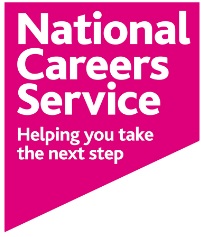Embarking on the UCAS journey is a pivotal step towards higher education, and at its core lies the UCAS Personal Statement. As the linchpin of your application, your UCAS personal statement offers the opportunity to put your best foot forward and present yourself as an exceptional candidate. In this guide, we provide tips on how to write a UCAS personal statement that grabs the attention of university admissions tutors.
In this article we cover:
-
Completing Your UCAS Application Form
The UCAS application form is your canvas; each stroke must reflect your academic prowess and personal attributes. Here’s how to navigate this critical document:
- Keep Contact Details Updated: Regularly update your phone, home, and email addresses. Ensure your inbox can handle bulk emails and that your school/college email address is functional.
- Precision in Exam Results: List subjects accurately with full titles. Provide complete details for BTEC awards, avoiding errors that could cause delays in result matching.
- Honesty is Key: UCAS employs sophisticated fraud-detection methods. Be truthful; any misinformation can lead to rejection and jeopardise your university prospects.
-
Writing Your UCAS Personal Statement
Your UCAS personal statement is your chance to communicate your narrative, and offer admissions tutors insight into your academic journey, motivations, and aspirations. It is your opportunity to get across who you are and why you’re passionate about your chosen field.
To ensure your personal statement stands out, follow these key principles:
- Preparation is Paramount: Allocate ample time for brainstorming, drafting, and refining your personal statement. Use UCAS Apply to paste in your pre-prepared statement.
- Be Authentic: Share experiences that have shaped your academic pursuits, revealing the real person behind the application.
- Be Clear and Concise: Stick to the word count (around 450 words). Admissions tutors have many statements to review, so make every word count. Aim for a balance between depth and brevity.
- Be Relevant: Tailor your content to the course you’re applying for. Highlight experiences, skills, and qualities that directly align with the requirements and expectations of the course you’re applying for.
- Showcase Your Unique Perspective: Share aspects of your life that contribute to your identity. This could include cultural experiences, personal challenges, or unique perspectives that have shaped your worldview.
- Communicate Positive Attributes and Motivations: Use your statement to showcase not only your academic achievements but also your positive attributes and motivations. What drives you to excel in your chosen field?
- Reflect on Work and Volunteer Experiences: If applicable, discuss how your work or volunteer experiences have influenced your academic and personal growth. Connect these experiences to the skills and insights you’ll bring to the university.
- List Your Extracurricular Achievements: Highlight relevant extracurricular achievements that demonstrate your commitment, leadership, and ability to balance diverse responsibilities.
- Articulate Your Career Aspirations: Admissions tutors appreciate candidates with a clear vision of how the course fits into their broader professional goals.
- Explain Your Gap Year Plans: If you’re planning a gap year, explain how this experience aligns with your personal development and future academic goals.
Things to Avoid:
- Plagiarism: Plagiarism is a serious offense and can have severe consequences on your application. UCAS uses advanced software to identify instances of plagiarism. It’s crucial to present an authentic and original personal statement that reflects your own thoughts, experiences, and aspirations. Drawing inspiration from sample statements is acceptable, but ensure that the final composition is uniquely yours.
- Overly Wacky Content: While injecting personality into your personal statement is encouraged, it’s essential to strike a balance. Tutors assess numerous statements, each representing a diverse range of individuals. What might be perceived as humorous to one person could be misinterpreted by another. Avoid excessive eccentricity; instead, focus on showcasing your character in a way that aligns with the professionalism expected in an academic setting.
- Sending Additional Papers to UCAS: UCAS has a structured application process, and additional documents, such as certificates, reference letters, or portfolios, should be sent directly to the universities you’re applying to, not through the UCAS system.
Each university may have its own requirements for supplementary materials. Refer to their respective admissions guidelines to ensure that you fulfill all necessary documentation, helping you present a comprehensive and organised application directly to the institutions of your choice.
-
Structuring Your UCAS Application for Success: Strategies and Tips
- Make sure your application is well organised
Use paragraphs or sub-headings for clarity. An organised presentation not only enhances the readability of your personal statement but also demonstrates your ability to structure and communicate ideas effectively. Use paragraphs to separate distinct thoughts and sub-headings to delineate different sections. This approach ensures that your statement is coherent, making it easier for admissions tutors to follow your narrative.
- If your application is unconventional, explain why
If your academic journey or choices deviate from the norm, take the opportunity to provide context. Explain any unusual aspects in your application, such as gaps in education or unconventional experiences. This allows admissions tutors to understand the reasons behind your choices and presents you as a transparent and thoughtful candidate.
- Clearly state reasons for deferred entry or reapplication
If you’re opting for deferred entry or reapplying, transparency is key. Clearly articulate the reasons behind your decision. Whether you’re taking a gap year for personal development or refining your application for a more competitive edge, honesty about your intentions strengthens your application.
- Tailor statements for mature students or vocational courses
Mature students and those applying for vocational courses bring unique perspectives to the academic landscape. Tailor your personal statement to highlight not just academic achievements but also life experiences, skills gained, and how they align with your chosen field. Demonstrating a mature approach or a clear vocational commitment enhances your candidacy.
- Be detailed; avoid generic statements
When discussing your interests and motivations, specificity is paramount. Avoid generic statements and delve into the details of what truly fascinates you about your chosen subject. Whether it’s a particular aspect of the course content, a related personal experience, or a specific academic achievement, providing detailed insights showcases a genuine passion and a deep understanding of your field.
-
Course Choices
Selecting courses is an art. Follow these guidelines:
- Research Thoroughly: Dive deep into the specifics of each course. Understand the modules offered, the teaching approach, and the long-term implications of each choice on your academic and professional journey.
- Make Realistic Choices: Ensure your chosen courses align with your academic strengths and achievements. Select courses that challenge you but remain within the realm of achievable grades.
- Unified Personal Statement: Despite applying to multiple courses, ensure your personal statement maintains a unified theme. Showcase how your diverse choices contribute to a cohesive academic and personal narrative.
-
Finishing Strong: Before You Hit Submit
The finishing touches on your application are crucial:
- Grammar and Punctuation: Thoroughly proofread your application. Impeccable grammar and punctuation are vital, as errors can undermine the credibility of your entire application.
- Get Second Opinions: Seek feedback from teachers, peers, or mentors. A fresh perspective can uncover overlooked mistakes and provide valuable insights for improvement.
- Avoid Procrastination: Procrastination can lead to rushed submissions. Adhere to school deadlines and allocate ample time for reviewing and refining your application before hitting submit.
-
UCAS Deadlines: Early Advantage
- Late Applications Risks: Submitting applications after the deadlines may pose risks. Universities may reject late applications, especially if they’ve already received sufficient submissions or if the course is highly competitive.
- Allowances for Late Applicants: Some universities may make allowances for mature applicants engaged in one-year Access Diplomas. However, it’s advisable to apply before the deadlines to ensure your application receives due consideration.
-
What Happens After Submission
The period after submitting your UCAS application is a crucial phase in your journey to university. Here’s a more detailed breakdown of what to expect:
- Confirmation Message from UCAS: Upon submitting your application, UCAS will send a confirmation message. This message will include details of the courses and universities you’ve chosen, along with your application number and password for UCAS Hub. Ensure you carefully review this confirmation to catch any potential errors, and safeguard your application number and password for future use.
- Focus on Your Exams: While awaiting responses from universities, shift your focus back to your academic responsibilities. Concentrate on preparing for exams and assessments, as strong results will play a crucial role in your final university offers. Use this time to excel in your studies and showcase your academic prowess.
- Weighing Your Options: As decisions from universities start arriving, carefully consider each offer. Understand the terms of the offer, whether unconditional or conditional. Take into account factors such as course content, university reputation, and location. Make informed decisions based on your preferences and long-term goals.
- Preparing for University Visits: If you receive offers, you might be invited to visit the universities. This is an invaluable opportunity to gain firsthand experience of campus life, explore facilities, and engage with potential future peers. Prepare a list of questions regarding your course, accommodations, and any other concerns. Treat these visits as a chance to make well-informed decisions about your academic journey.
- Exploring Alternatives: In case you find yourself facing rejections or want to explore additional options, consider alternatives such as gap years, apprenticeships, or alternative courses. Engage with career counselors, explore vocational opportunities, or research other pathways that align with your interests and goals.
- Financial Planning: Begin considering the financial aspects of your university journey. Explore scholarship opportunities, investigate student loans, and plan a budget for your academic year. Understanding the financial landscape will help you make informed decisions and alleviate potential stress down the road.
- Stay Proactive: Stay proactive and engaged throughout the waiting period. Regularly check your UCAS account and email for updates. Respond promptly to any correspondence from universities and UCAS. Being proactive demonstrates your commitment and enthusiasm to the institutions you’ve applied to.
- Mind Your Mental Health: The post-submission phase can be emotionally charged. Manage stress and anxiety by practicing self-care. Reach out to support networks, whether they be friends, family, or counselors. A healthy mindset is crucial as you navigate the next steps in your academic journey.
In essence, this period demands a blend of patience and preparedness. By focusing on your academics, critically assessing offers, and preparing for potential university visits, you set the stage for a successful transition to higher education.
The National Careers Service offers free advice about careers and skills to anyone aged 13 or over and living in England. To speak to a professional careers adviser, call 0800 100 900 or use webchat (8am – 8pm Monday – Friday; 10am – 5pm Saturday)

